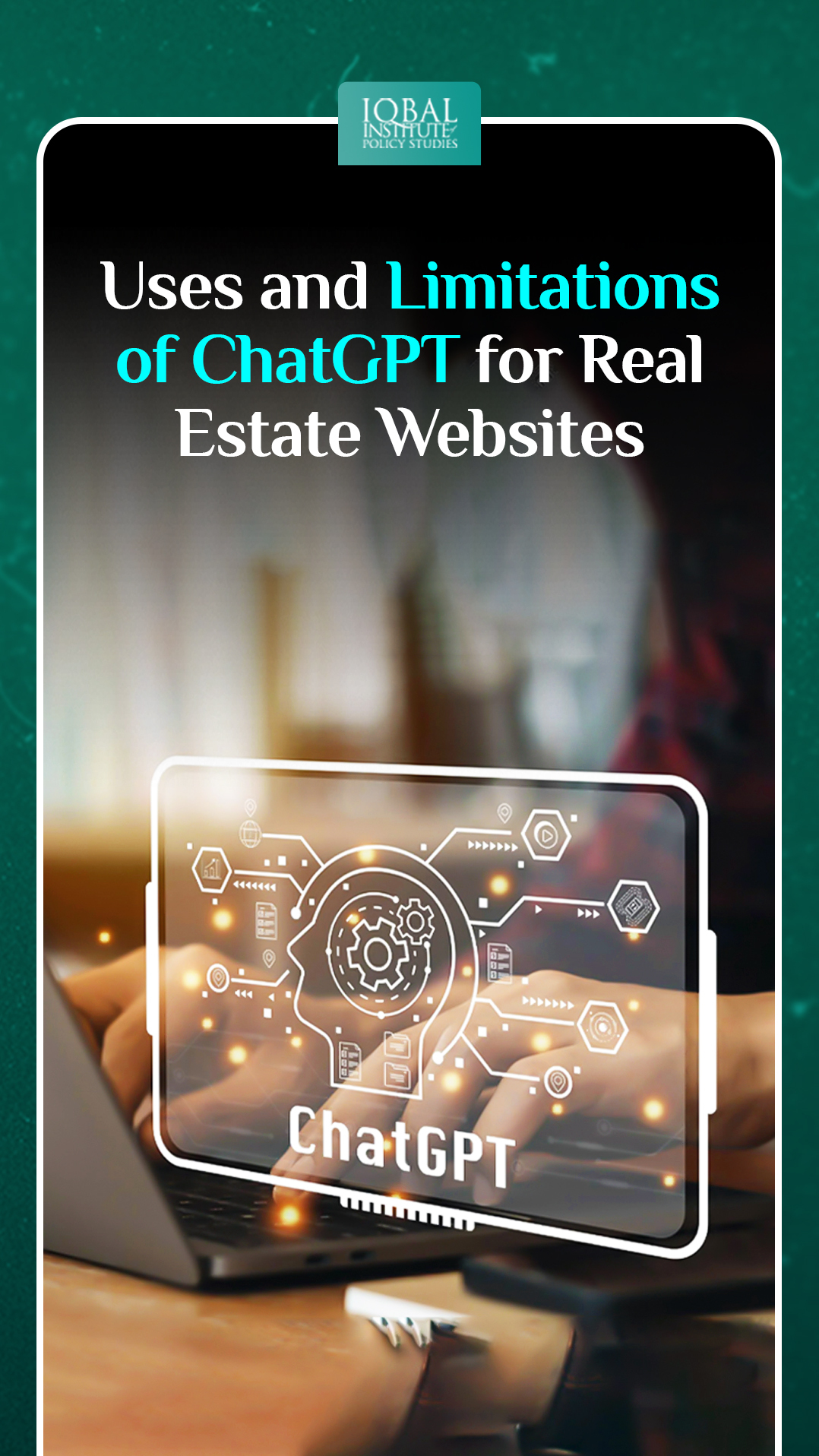You already understand the value of content marketing in boosting your online presence, driving quality traffic, and attracting new customers. However, if the thought of creating content from scratch overwhelms you, fear not! There are clever tools available to help you work smarter, not harder.
While nothing can truly replace content crafted by a knowledgeable human with the latest expertise, there are still ingenious ways you can leverage ChatGPT to save time. In this article, we’ll delve into the limitations you should be aware of, reveal certain strategies to maximise your use of ChatGPT and explore the benefits of combining this popular AI chatbot with other valuable resources. Get ready to supercharge your content creation journey.
What is ChatGPT?
ChatGPT defines itself as “a large language model created by OpenAI.” This advanced artificial intelligence is specifically designed to comprehend natural language and generate responses that closely resemble human-like interactions. By leveraging an extensive dataset sourced from the internet, including books, articles, and websites, ChatGPT taps into a vast well of knowledge to offer helpful and informative answers to a wide range of prompts and questions. Essentially, ChatGPT serves as an accessible chatbot that can tackle your inquiries and conversationally deliver content, aiming to mimic the nuances of human conversation to the best of its robotic abilities.
What are the Limitations of ChatGPT?
As with any tool, ChatGPT comes with its own set of advantages and disadvantages. While it can be a valuable resource for content inspiration, it’s crucial to recognize its limitations and instances where it might be unreliable or unhelpful.
Lack of Information or Context
One of the limitations of ChatGPT is its dependence on the text it has been trained on. Since its responses are generated based on this training data, there are instances where it may lack access to specific information or the necessary context to provide a comprehensive answer. Consequently, this can result in inaccurate or incomplete responses that may not fully address the question at hand.
Ambiguity or Multiple Interpretations
Another important aspect to consider is that the same sentence or phrase can often have multiple meanings or interpretations. Due to this ambiguity, ChatGPT may struggle to discern the intended meaning and, as a result, provide inaccurate responses.
Biases in Training Data
Additionally, the quality of ChatGPT’s responses is heavily reliant on the training data it has been exposed to. If this training data contains biases or inaccuracies, there is a risk that ChatGPT may inadvertently reflect and perpetuate those biases in its generated responses. It’s essential to be aware of this potential bias and critically evaluate the information provided by ChatGPT.
Lack of Common Sense or Real-World Experience
One important limitation of ChatGPT is its lack of common sense and real-world experience, which humans naturally possess. Thatis can results in ChatGPT providing responses that are inaccurate or nonsensical in certain situations where context and practical knowledge are crucial.
Technical Limitations
Furthermore, despite being an advanced language model, ChatGPT is bound by the technical limitations of current natural language processing technology. In more intricate or nuanced scenarios, it may struggle to generate accurate responses. These limitations remind us that while ChatGPT is a powerful tool, it is not infallible and should be used with caution, especially when addressing complex subject matters.
Potentially Out-of-Date Content
It’s important to note that ChatGPT has a knowledge cutoff point, which means it is only familiar with training data until 2021. Consequently, if you require content that is more up-to-date or time-sensitive, the current version of the tool may not be suitable for fulfilling those needs.
How ChatGPT can help you in the Real Estate Industry
To safeguard your search rankings, it’s crucial to approach content generated directly from ChatGPT with caution, as it is more likely to have a negative impact than a positive one. Instead, it is advisable to view ChatGPT as a valuable tool for inspiration and research purposes, rather than relying on it solely for content creation. Here are five intelligent strategies for utilizing ChatGPT effectively:
Generating Blog Post Ideas
Generating blog post topics can be a time-consuming task, but ChatGPT can lend a helping hand by providing you with a curated list of ideas. To maximize the effectiveness of this approach, it’s best to be specific in your prompts. Rather than asking for general blog post topics about “real estate,” try focusing on a more precise aspect like “real estate investing.” Additionally, including your intended audience, such as “first-time homebuyers,” and specifying the location you’re targeting, can further enhance the relevance of the generated ideas. Here’s an example of a well-constructed prompt: “Could you suggest ten blog topic ideas about real estate investing for first-time homebuyers with the name of the targeted location?” This way, ChatGPT can provide you with more tailored and valuable suggestions for your content.
Researching Blog Content
ChatGPT proves to be a valuable resource for gathering information that can enhance your content creation process. As it is trained on a vast array of publicly available text, you can leverage this tool to gather insights for your content. For instance, you can inquire about the essential elements to include in a blog post offering tips for first-time homebuyers by asking, “What should I include in a blog post about tips for first-time homebuyers?” Alternatively, you can request ChatGPT to generate a blog post on the topic of first-time home buying, by phrasing your prompt as, “Write a blog post about first-time home buyers.”
Creating Outlines for Blogs and How-to Guides
It’s important to remember that the responses provided by ChatGPT should be used strictly for research purposes and not copied and pasted directly into your content. By using the information as a reference, you can gather valuable insights and craft your unique content based on the knowledge acquired.
Summarising Webpages to Create Meta Descriptions
Meta descriptions play a crucial role in summarising the content of web pages. With ChatGPT, you can generate meta descriptions by providing a prompt like: “Summarize this article in 140 characters: [article URL].” This allows ChatGPT to provide you with a handy meta description. Notably, using ChatGPT for generating meta descriptions aligns with Google’s guidelines.
Writing Compelling Property Descriptions
When it comes to writing compelling property descriptions, ChatGPT proves useful. By inputting basic information about a property, such as bedrooms, bathrooms, and square footage, ChatGPT can generate detailed descriptions that highlight the property’s key features and benefits. However, it’s important to avoid copying and pasting the generated content directly, as it may violate Google’s guidelines. Instead, use these descriptions as a starting point, tailor the content to match your brand’s voice, and refer to tips for creating engaging property descriptions.
Why You Still Need a Human SEO Provider
While ChatGPT is an excellent tool for content creation, it should not replace the need for a human SEO specialist or team. Working with experienced SEO professionals offers distinct benefits that ChatGPT cannot replicate:
Understanding of context
Human SEO specialists excel at comprehending the context of specific keywords or phrases, leading to more accurate and effective keyword optimization.
Data analysis
SEO specialists possess the expertise to analyze data sets, identify trends, and extract valuable insights, which may go beyond ChatGPT’s capabilities.
Industry-specific knowledge
ChatGPT is a general-purpose language model and may lack specific knowledge of the real estate industry or tailored SEO strategies for real estate websites.
Technical expertise
SEO specialists have the technical know-how to implement advanced strategies like optimizing website architecture and improving page load times, which goes beyond ChatGPT’s capabilities.
SEO performance tracking
While ChatGPT can guide SEO strategies, SEO specialists can track and measure the performance of these strategies over time, including their impact on website traffic, rankings, and conversions.
By leveraging the strengths of both ChatGPT and human SEO professionals, you can harness a comprehensive and effective approach to optimize your content and enhance your search engine rankings.
Conclusion
In conclusion, while ChatGPT is a powerful tool that can provide valuable assistance in content creation for real estate websites, it is essential to be aware of its limitations. ChatGPT’s dependence on training data and potential lack of context, ambiguity in interpretations, biases in responses, and technical constraints remind us that it cannot replace the expertise of human SEO specialists. However, by leveraging ChatGPT for generating blog post ideas, researching content, creating outlines, summarizing webpages, and generating property descriptions, you can save time and gather inspiration. Combining the strengths of ChatGPT with the insights and skills of human SEO professionals allows for a comprehensive approach to content creation, ensuring optimized results and maintaining a competitive edge in the real estate market.
This article is written by Waqar Ahmad. Waqar is a Research Analyst at the Iqbal Institute of Policy Studies (IIPS).



Leave a Reply